Vision Support
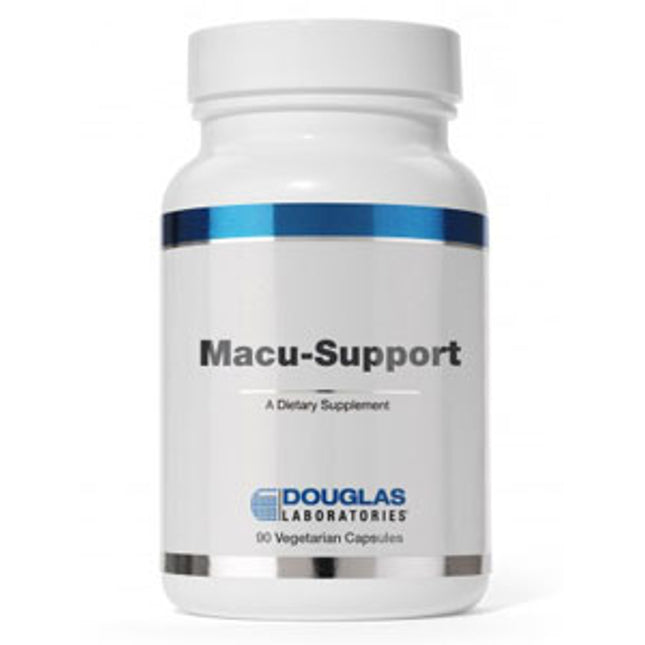
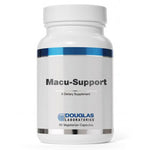
Key nutrients for macula and retina health* Macu-Support supplies a well-balanced spectrum of key nutrients that are important in maintaining normal retina and macula function in the eyes. Macu-Support contains important antioxidant nutrients including vitamin C, vitamin E, zinc, lutein and zeaxanthin, and is free of beta-carotene. These important nutrients have shown positive results for vision health in the AREDS 2 trial conducted by the National Eye Institute.* AREDS 2 is a trademark of the United States Department Of Health And Human Services.  Dietary Considerations Gluten Free Non-GMO  Serving Size:3 Vegetable Capsule  Servings Per Container:30  Amount Per Serving% Daily Value Vitamin C (ascorbic acid)500 mg556% Vitamin E (as vitamin E succinate)268 mg1787% Zinc (as zinc monomethionine)25 mg227% Lutein (from marigold Tagetes erecta) flower)††10 mg Zeaxanthin2 mg  Other Ingredients: Capsule (hydroxypropyl methylcellulose, titanium dioxide), microcrystalline cellulose, silica, vegetable stearate Adults take 3 capsules daily with a meal or as directed by a health professional. If you are pregnant, nursing, have any health condition or taking any medication, consult your health professional before using this product. Keep out of reach of children. Store in a cool, dry place. Use only if safety seal is intact. ††FloraGLO is a registered trademark of Kemin Industries, Inc., USA. †OptiZinc is a trademark of InterHealth Company.
$38.00
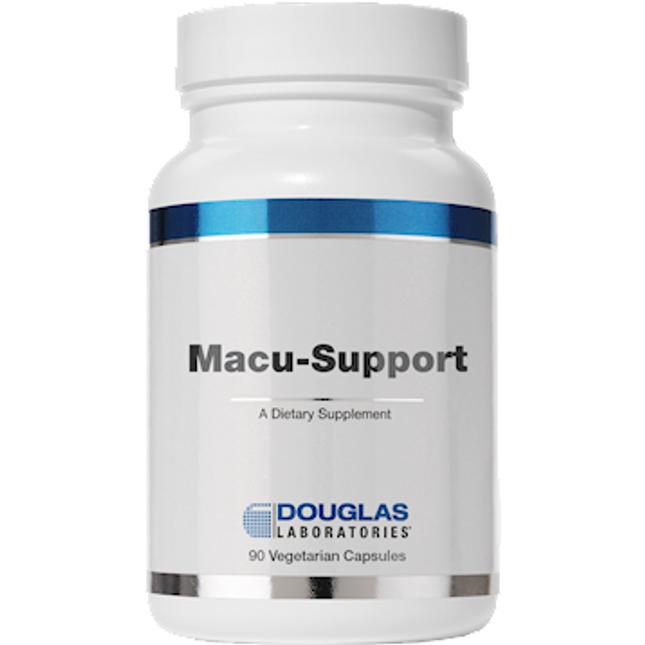
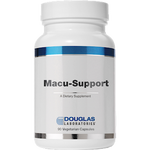
Key nutrients for macula and retina healthMacu-Support supplies a well-balanced spectrum of key nutrients that are important in maintaining normal retina and macula function in the eyes. Macu-Support contains important antioxidant nutrients including vitamin C, vitamin E, zinc, lutein and zeaxanthin, and is free of beta-carotene. These important nutrients have shown positive results for vision health in the AREDS 2 trial conducted by the National Eye Institute.AREDS 2 is a trademark of the United States Department Of Health And Human Services.Dietary ConsiderationsGluten FreeNon-GMOServing Size: 3 Vegetable CapsuleServings Per Container: 30Amount Per Serving % Daily ValueVitamin C (ascorbic acid) 500 mg 556%Vitamin E (as vitamin E succinate) 268 mg 1787%Zinc (as zinc monomethionine) 25 mg 227%Lutein (from marigold Tagetes erecta) flower) 10 mgZeaxanthin 2 mgOther Ingredients:Capsule (hydroxypropyl methylcellulose, titanium dioxide), microcrystalline cellulose, silica, vegetable stearateAdults take 3 capsules daily with a meal or as directed by a health professional.If you are pregnant, nursing, have any health condition or taking any medication, consult your health professional before using this product.Keep out of reach of children. Store in a cool, dry place. Use only if safety seal is intact.FloraGLO is a registered trademark of Kemin Industries, Inc., USA.OptiZinc is a trademark of InterHealth Company.
$43.80
Vision Support Products
Vision support supplements are a great way to make certain you are getting all the nutrients you need to support and maintain your eyes. Proper eyecare consists of getting excellent nutrition through both vision supplements and good diet. Additionally, avoiding eyestrain, using proper eye protection and getting adequate rest all combine to create an excellent program of eye support. The vitamins and minerals necessary for proper eyecare are many and varied. That's why it's a good idea to take a vision multivitamin that provides plenty of beta-carotene and vitamin A, a good assortment of B vitamins, vitamins C, D and E. Additionally, a good vision multivitamin should provide carotenoids, such as lutein and macular pigments, such as zeaxanthin to help guard against macular degeneration and cataracts. Also, look for bioflavonoid to help support good absorption of vitamin C, phytochemical antioxidants to fight oxidative stress and Omega-3 fatty acids to help prevent dry eye and encourage general glowing health.
While vision supplements are very important, it is equally important to remember to eat a varied and balanced diet for optimum eye support and overall health benefits. When eating for good eyecare, you should be sure to eat lots of fresh fruits and veggies and whole grains. In fact, half your diet should be fresh fruit and vegetables and a quarter of it should be whole grains. The remaining quarter of your diet can be made up of lean protein sources, low fat dairy products and healthful oils such as olive, grapeseed, sunflower and other non-hydrogenated, natural types of oil. Be sure to drink plenty of fresh, pure water and avoid processed foods and foods that contain a great deal of sugar, salt and artificial ingredients. By following this sort of healthful, whole foods diet, you will enjoy excellent overall health and well-being, and your body will be able to make the best use of the vision support supplements you choose.
Blog posts
-

in Wellness Bone Health and Osteoporosis Prevention
Maintaining bone mass health is a crucial part of healthy aging. Incorporating supplements into your daily routine based on the needs of the body can help...
-

in Wellness Collagen: Your Key to Healthy Joints, Skin, and Hair
Collagen is a protein that plays a vital role in maintaining the health and integrity of our joints, skin, and connective tissues. Our collagen production...
-
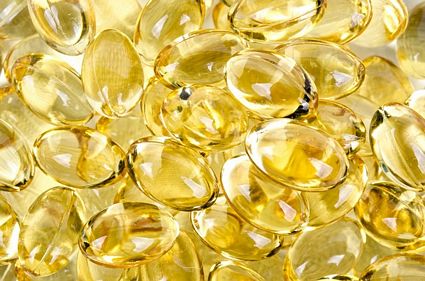
in Wellness What Are Omega-3 Fatty Acids
We grew up with our parents telling us to take our fish oils daily. More and more people are now taking fish oil supplements for...
-

in Wellness Causes For Kidney Stones
Kidney stones form when the delicate balance within the urinary tract becomes disrupted due to dehydration, digestive issues and food choices.








